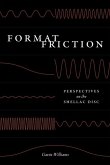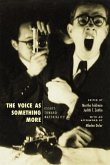"Through archival work and storytelling synthesis, Music Migration and Imperial New York revises, subverts, and supplements many inherited narratives about experimental music and arts in postwar New York into a sweeping new whole. From the urban street-level via music clubs and arts institutions to the world-making routes of global migration and exchange, this book seeks to redraw the geographies of experimental art and so to reveal the imperial dynamics, as well as profoundly racialized and gendered power relations, that shaped and continue to shape the discourses and practices of modern music in the United States. Beginning with the material conditions of power that structured the cityscape of New York in the early Cold War years (ca. 1957 to 1963), Brigid Cohen's book encompasses a considerably wider range of people and practices than is usual in studies of the music of this period. It looks at a range of artistic practices (concert music, electronic music, jazz, performance art) and actors (Varáese, Mingus, Yoko Ono, and Fluxus founder George Maciunas) as they experimented with new modes of creativity"--
Hinweis: Dieser Artikel kann nur an eine deutsche Lieferadresse ausgeliefert werden.
Hinweis: Dieser Artikel kann nur an eine deutsche Lieferadresse ausgeliefert werden.








